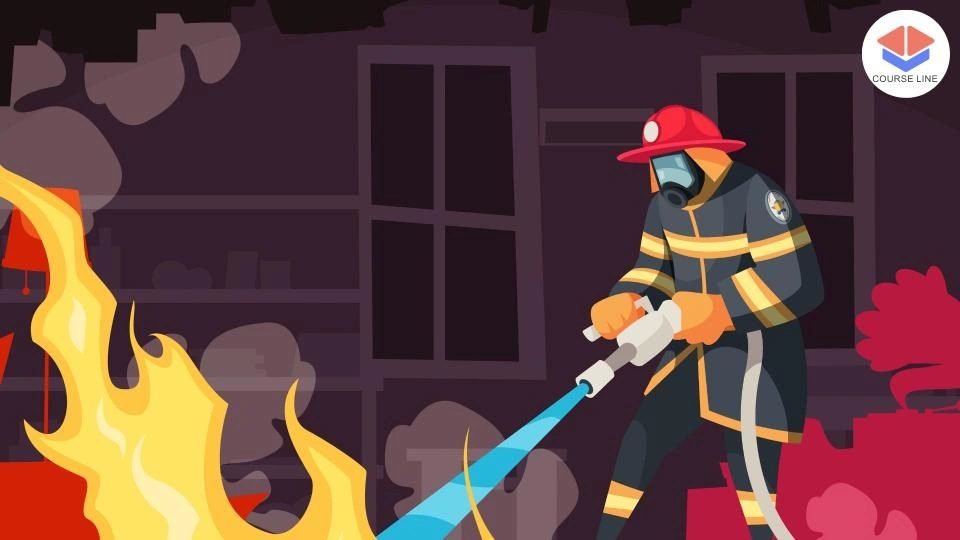Course Features
Price
Study Method
Online | Self-paced
Course Format
Reading Material - PDF, article
Duration
3 hours, 5 minutes
Qualification
No formal qualification
Certificate
At completion
Additional info
Coming soon
- Share
Overview
The Microbiology Curriculum Breakdown offers a detailed and structured approach to understanding the world of microorganisms and their role in human health. The course begins with an introduction to microbiology, providing a solid foundation for the study of microorganisms and their diverse impact on biology. Learners will explore bacteriology in-depth, covering the classification, growth, and behavior of bacteria, which are crucial in understanding infections and diseases.
In the following modules, the course delves into viruses, beginning with a general overview and progressing to specific types, including DNA viruses, positive-strand RNA viruses, and negative-strand RNA viruses. Students will gain an understanding of the molecular structure, replication mechanisms, and diseases caused by each virus type. The curriculum also examines parasites and fungi, exploring their role in infections and the treatments available. A particular focus is placed on antifungal medicines, highlighting their application in medical practice.
Further into the course, learners will study immunology, which forms the basis for understanding how the body defends itself against pathogens. The course also covers antibiotics, detailing their mechanisms, uses, and challenges, including the issue of antibiotic resistance. Additionally, sexually transmitted diseases are addressed, providing critical insights into their transmission, prevention, and treatment. By the end of the course, students will have a well-rounded knowledge of microbiology and its practical applications in healthcare and research.
Who is this course for?
The Microbiology Curriculum Breakdown offers a detailed and structured approach to understanding the world of microorganisms and their role in human health. The course begins with an introduction to microbiology, providing a solid foundation for the study of microorganisms and their diverse impact on biology. Learners will explore bacteriology in-depth, covering the classification, growth, and behavior of bacteria, which are crucial in understanding infections and diseases.
In the following modules, the course delves into viruses, beginning with a general overview and progressing to specific types, including DNA viruses, positive-strand RNA viruses, and negative-strand RNA viruses. Students will gain an understanding of the molecular structure, replication mechanisms, and diseases caused by each virus type. The curriculum also examines parasites and fungi, exploring their role in infections and the treatments available. A particular focus is placed on antifungal medicines, highlighting their application in medical practice.
Further into the course, learners will study immunology, which forms the basis for understanding how the body defends itself against pathogens. The course also covers antibiotics, detailing their mechanisms, uses, and challenges, including the issue of antibiotic resistance. Additionally, sexually transmitted diseases are addressed, providing critical insights into their transmission, prevention, and treatment. By the end of the course, students will have a well-rounded knowledge of microbiology and its practical applications in healthcare and research.
Requirements
The Microbiology Curriculum Breakdown offers a detailed and structured approach to understanding the world of microorganisms and their role in human health. The course begins with an introduction to microbiology, providing a solid foundation for the study of microorganisms and their diverse impact on biology. Learners will explore bacteriology in-depth, covering the classification, growth, and behavior of bacteria, which are crucial in understanding infections and diseases.
In the following modules, the course delves into viruses, beginning with a general overview and progressing to specific types, including DNA viruses, positive-strand RNA viruses, and negative-strand RNA viruses. Students will gain an understanding of the molecular structure, replication mechanisms, and diseases caused by each virus type. The curriculum also examines parasites and fungi, exploring their role in infections and the treatments available. A particular focus is placed on antifungal medicines, highlighting their application in medical practice.
Further into the course, learners will study immunology, which forms the basis for understanding how the body defends itself against pathogens. The course also covers antibiotics, detailing their mechanisms, uses, and challenges, including the issue of antibiotic resistance. Additionally, sexually transmitted diseases are addressed, providing critical insights into their transmission, prevention, and treatment. By the end of the course, students will have a well-rounded knowledge of microbiology and its practical applications in healthcare and research.
Career path
The Microbiology Curriculum Breakdown offers a detailed and structured approach to understanding the world of microorganisms and their role in human health. The course begins with an introduction to microbiology, providing a solid foundation for the study of microorganisms and their diverse impact on biology. Learners will explore bacteriology in-depth, covering the classification, growth, and behavior of bacteria, which are crucial in understanding infections and diseases.
In the following modules, the course delves into viruses, beginning with a general overview and progressing to specific types, including DNA viruses, positive-strand RNA viruses, and negative-strand RNA viruses. Students will gain an understanding of the molecular structure, replication mechanisms, and diseases caused by each virus type. The curriculum also examines parasites and fungi, exploring their role in infections and the treatments available. A particular focus is placed on antifungal medicines, highlighting their application in medical practice.
Further into the course, learners will study immunology, which forms the basis for understanding how the body defends itself against pathogens. The course also covers antibiotics, detailing their mechanisms, uses, and challenges, including the issue of antibiotic resistance. Additionally, sexually transmitted diseases are addressed, providing critical insights into their transmission, prevention, and treatment. By the end of the course, students will have a well-rounded knowledge of microbiology and its practical applications in healthcare and research.
-
- Introduction to Microbiology 00:10:00
-
- Bacteriology 00:10:00
- Viruses 00:10:00
- Positive-Strand RNA Viruses 00:10:00
- Parasites 00:10:00
- Antifungal Medicines 00:10:00
- Antibiotics 00:10:00
- Exam of Microbiology 00:50:00

No Reviews found for this course.
Is this certificate recognized?
Yes, our premium certificate and transcript are widely recognized and accepted by embassies worldwide, particularly by the UK embassy. This adds credibility to your qualification and enhances its value for professional and academic purposes.
I am a beginner. Is this course suitable for me?
Yes, this course is designed for learners of all levels, including beginners. The content is structured to provide step-by-step guidance, ensuring that even those with no prior experience can follow along and gain valuable knowledge.
I am a professional. Is this course suitable for me?
Yes, professionals will also benefit from this course. It covers advanced concepts, practical applications, and industry insights that can help enhance existing skills and knowledge. Whether you are looking to refine your expertise or expand your qualifications, this course provides valuable learning.
Does this course have an expiry date?
No, you have lifetime access to the course. Once enrolled, you can revisit the materials at any time as long as the course remains available. Additionally, we regularly update our content to ensure it stays relevant and up to date.
How do I claim my free certificate?
I trust you’re in good health. Your free certificate can be located in the Achievement section. The option to purchase a CPD certificate is available but entirely optional, and you may choose to skip it. Please be aware that it’s crucial to click the “Complete” button to ensure the certificate is generated, as this process is entirely automated.
Does this course have assessments and assignments?
Yes, the course includes both assessments and assignments. Your final marks will be determined by a combination of 20% from assignments and 80% from assessments. These evaluations are designed to test your understanding and ensure you have grasped the key concepts effectively.
Is this course accredited?
We are a recognized course provider with CPD, UKRLP, and AOHT membership. The logos of these accreditation bodies will be featured on your premium certificate and transcript, ensuring credibility and professional recognition.
Will I receive a certificate upon completion?
Yes, you will receive a free digital certificate automatically once you complete the course. If you would like a premium CPD-accredited certificate, either in digital or physical format, you can upgrade for a small fee.
Course Features
Price
Study Method
Online | Self-paced
Course Format
Reading Material - PDF, article
Duration
3 hours, 5 minutes
Qualification
No formal qualification
Certificate
At completion
Additional info
Coming soon
- Share
Clinical Psychology Level 8 Advanced Diploma
Course Line240£490.00Original price was: £490.00.£14.99Current price is: £14.99.Firefighter Training Level 3 Advanced Diploma
Course Line238£490.00Original price was: £490.00.£14.99Current price is: £14.99.





